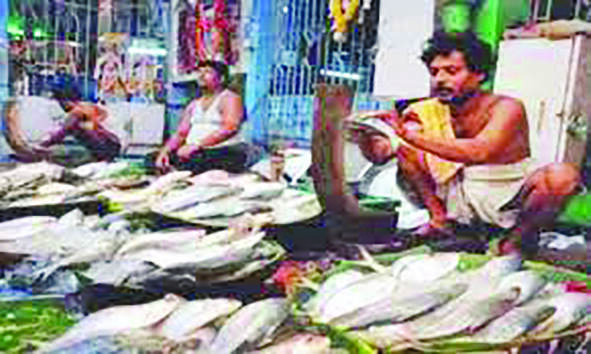Irregular rains: Only 35 metric tonne Hilsa available daily

kolkata: South West Monsoon entered South Bengal in a weak condition as a result most of the districts in the southern parts of the state are yet to receive heavy spells of showers. Fishermen who have ventured into the sea after two months ban face scanty hilsa catch due to irregular monsoon.
It was expected that adequate collection of hilsa would be available in the market after June 20. Monsoon had entered South Bengal on June 13 but there has not been a heavy spell of rainfall in any of the South Bengal districts. During this part of the year, the state requires 80-100 metric tonne of hilsa on a daily basis but the supply is now around 35 metric tonne.
The Bengal government implemented a ban on marine fishing for two months from April 15 to June 14 to control fishing in the deep sea. Hundreds of trawlers ventured into the sea to catch Hilsa after the ban on deep sea fishing was lifted. The State Fisheries department has been strictly enforcing a ban on fishing in the deep sea so that breeding of Hilsa fish is not affected. State fisheries department has however been offering alternative employment opportunities and offering food security under Khadya Sathi especially during the ban period so that they do not go to the sea to catch fishes.
Marine fish catch from the North Bay of Bengal region has been sharply declining with the state facing scanty hilsa catch as the unscientific fishing destroys natural habitat. A study states that the number of boats engaged in fishing increased by more than 25 percent while hilsa catch dipped by more than 13 percent. The number of boats operating in North Bay of Bengal is much beyond the sustainable limit.
Experts pointed out that people in the state may see a further dip in marine fish production in the next few years. State government has been taking up various means to ensure that various fish production does not get hampered in the state. The application of destructive fishing gears that too in excess of sustainable limits is also contributing towards a persistent decline of marine fish catch.



